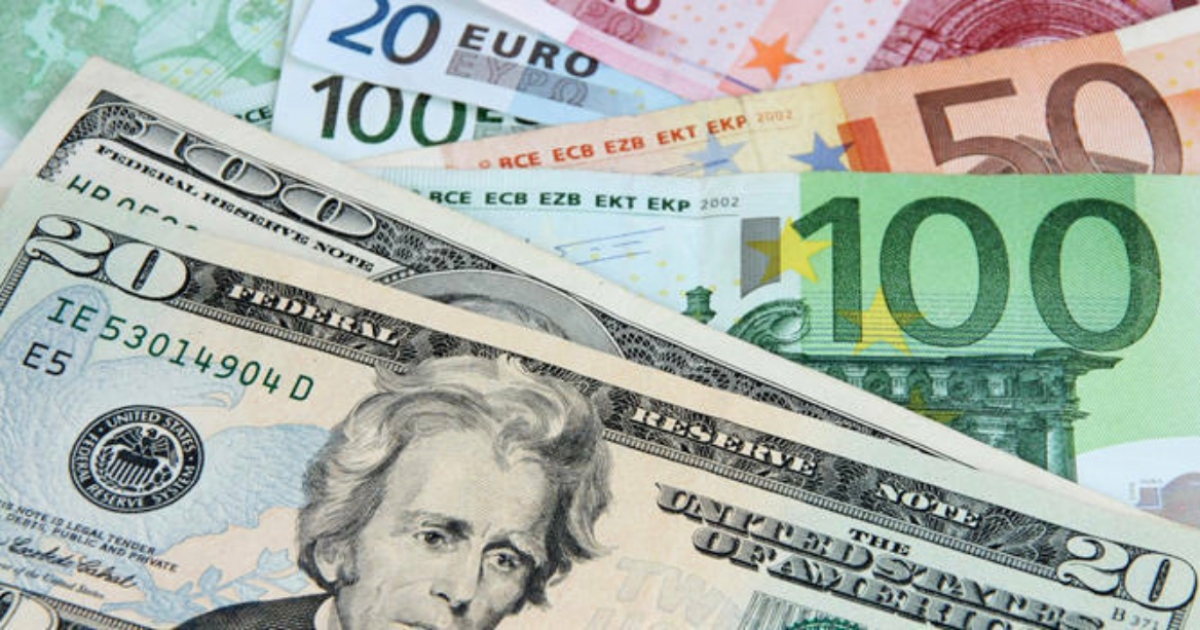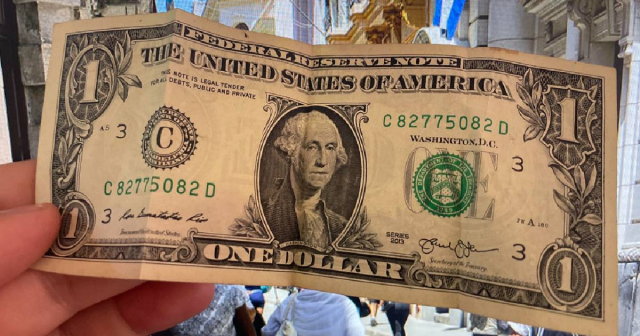
This Friday, dollars, euros, and MLCs woke up with a moderate decrease in their selling value in the Cuban informal market.
At 7:00 a.m. (local time), the US currency is valued at 330 CUP, five pesos less than the previous day.
The euro also drops by five units, falling to 345 CUP after being pegged at 350 for several days.
The drop of the Freely Convertible Currency (MLC) is more moderate. The virtual currency used by the Cuban government falls three pesos and wakes up valued at 290 CUP, always positioned at a great distance from dollars and euros.
After 48 hours without fluctuations in the average selling value of currencies, the informal market has reacted on Thursday and Friday by reaching the maximum price in six basic products with a discreet decrease in the value of the three reference currencies.
Exchange rate today 07/12/2024 - 7:10 a.m. in Cuba:
USD to CUP exchange rate according to elTOQUE: 330 CUP.
Exchange rate of the euro EUR to CUP according to EL TOQUE: 345 CUP.
Exchange rate of MLC to CUP according to TOQUE: 290 CUP. The informal exchange rate of Cuba offered here is not officially recognized or backed by any financial or governmental entity.
Equivalences of each available euro and US dollar bill to Cuban pesos (CUP).
United States Dollar (USD) to Cuban Peso (CUP), according to the exchange rates of this Friday, July 12th.
1 USD: 330 CUP. 5 USD: 1,650 CUP.
10 USD: 3,300 CUP.
20 USD: 6,600 CUP.
50 USD: 16,500 CUP.
100 USD: 33,000 CUP.
Euros (EUR)
1 EUR: 345 CUP.
5 EUR: 1,725 CUP.
10 EUR: 3,450 CUP.
20 EUR: 6,900 CUP.
50 EUR: 17,250 CUP.
100 EUR: 34,500 CUP.
200 EUR: 69,000 CUP.
500 EUR: 172,500 CUP.
The Cuban government sets price limits on six products.
The decrease in the value of dollars, euros, and MLC on Friday takes place after the Cuban government announced on Monday the implementation of a price cap on six high-demand basic products through a resolution published in the Official Gazette.
Resolution 225/2024 of the Ministry of Finance and Prices establishes that the capped products are the following: diced chicken (680 pesos per kg); edible oils except for olive oil (990 pesos per liter); powdered milk (1,675 pesos per kg); pasta (835 pesos per kg); sausages (1,045 pesos per kg); and powdered detergent (630 pesos per kg).
The regime presented the resolution as an effort to mitigate the impact of inflation on consumers, for which they also eliminated the payment of customs duties on the importation of those products by the private sector.
They indicated that this cap takes into account acquisition costs, marketing, merchant profits, and sales tax. However, SMEs and some economists have spoken out against the announcement.
The measure has been criticized mainly by business owners and economists, who warn about the negative consequences of price caps and suggest that the market should be regulated through supply.
Despite the criticism, the Ministry of Finance and Prices defends what it classifies as a "temporary regulation," arguing that it is a measure to contain price increases and inflation, without mentioning the possible shortages that could result from this policy.
In March, Miguel Díaz-Canel promised a package of economic measures to "correct distortions and reinvigorate the economy." He said that prices would continue to be high, but that "abusive or speculative prices" would not be allowed.
What do you think?
SEE COMMENTS (1)Archived in:






